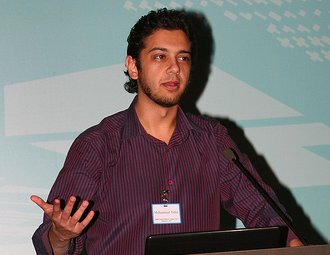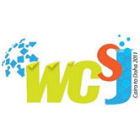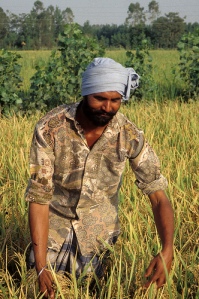David Dickson
Director, SciDev.Net
“The revolution was the easy part. What is happening now is the hard part.”
These were the rousing words with which Nadia El-Awady, co-founder of the Association of Arab Journalists, president of the World Federation of Science Journalists – and an active participant of the events in Cairo’s Tahrir Square in January and February of this year – brought to an end three days of intense debate on the role of science journalism in the modern world.
Nadia, who is also a trustee of SciDev.Net, was referring primarily to the aftermath of the Arab spring.
She was reminding participants that those who had been successful in toppling an unpopular, authoritarian regime, armed with little more than a common cause and the convening power of the Internet, now faced the reality of putting an alternative, functioning system in its place.
But her words also reflected a theme to emerge from the conference itself. Ten years ago, the major task facing science journalists, particularly in the developing world, was to get scientists to take them seriously.

Journalists can play a key role in ensuring a political commitment to transparency. Credit: Flickr/Charles Mok
That struggle has now been won. But it has been replaced by an even more challenging one, namely to get governments to embrace, rather than seek to suppress, the power to expose and interrogate that even science journalists now enjoy.
Too often, as the conference heard, the official response to this new power is to attempt to shut down the possibility of open communication between scientists and journalists, allowing it only under strictly controlled conditions. This poses science journalists with a whole new set of challenges.
Some responses – such as avoiding press officers wherever possible – offer short-term solutions. In the long-run, however, the problem can only be solved through a political commitment to transparency and open government – and a recognition of the key role that journalists can play in ensuring that this commitment is honoured.
As eyes now turn to Helsinki, the location of the next world conference in two years’ time, these are the issues that need to be high on the agenda. They impact on the work of all science journalists, from developed and developing countries alike.
Tackling them together reminds us that we are a member of a global profession with a common set of commitments, not only to professional standards but also to transparency and accountability. This is perhaps the biggest legacy of the Doha meeting. Exploring how to put these commitments into effect must remain high on the agenda of the organisers of its successor in Helsinki.




 Posted by scidevnet
Posted by scidevnet 









You must be logged in to post a comment.